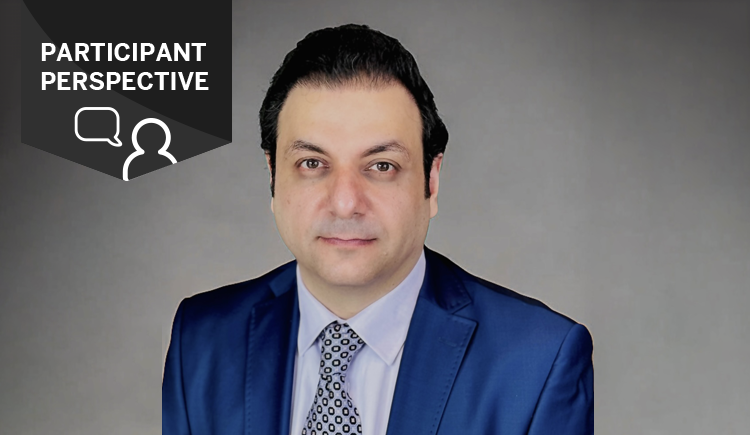 There’s been growing interest in master’s degree programs over the past few years. This trend is reflected in Nature’srecent annual graduate studentsurvey. This is the publication’s first year to include master’s-level students as part of their research, providing deeper insight into the value that many people place on master’s-level education.
There’s been growing interest in master’s degree programs over the past few years. This trend is reflected in Nature’srecent annual graduate studentsurvey. This is the publication’s first year to include master’s-level students as part of their research, providing deeper insight into the value that many people place on master’s-level education.
The Nature findings revealed that 79 percent of respondents are satisfied with their overall decision to pursue a graduate degree, while 68 percent are satisfied with their current graduate programs. In addition, more than 50 percent of respondents cited working with interesting and bright people as a factor they appreciate about their programs, while close to 50 percent also said they enjoyed the intellectual challenge.
Such sentiments are in keeping with those expressed by master’s degree students at Harvard Medical School (HMS), according to Johanna Gutlerner, Ph.D., senior associate dean for graduate education at Harvard Medical School. In fact, she points out that in an annual program evaluation of Harvard Medical School post-graduate students, the students collectively rated their satisfaction as even higher than the Nature respondents. And while the two surveys are not parallel, they are both representative of a larger trend.
“We don’t ask our students the same exact questions as in the Nature study on our annual program evaluation, but we do ask how effective our programs are in helping participants reach their goals,” she says. “Out of a possible 5 for most effective, students rated Harvard Medical School master’s degree programs at 4.21.”
The Value of Continuing Education
She says that there are multiple reasons that Harvard Medical School master’s programs receive such high marks. This includes the range of programs and the flexibility that Harvard Medical School offers, the valuable networks that participants form with colleagues and faculty, and the ability for participants to grow their skills in meaningful ways to improve the value they bring to the table.
“Every employer today is asking more of their employees. Therefore, whether you are a leader of a clinical service, immunology, or global health delivery, you can benefit from building your skills to better meet the demands you will face on the job,” Gutlerner stresses.
That’s why Harvard Medical School has a variety of master’s-level programs that are tailored for different interests and backgrounds—from post baccalaureate students looking for a full-time in-person experience to continue their education to mid-career professionals seeking a part-time remote option that will allow them to gain new skills while continuing to manage their personal and professional responsibilities.
“During COVID-19, we were able to experiment with our remote offerings and we found that we can provide the same level of rigor and access to faculty in a remote environment that is equal to what our students get when they are residential,” Gutlerner emphasizes. This enables Harvard Medical School graduate programs to be more accessible to a global audience, as well as to professionals within the U.S. who want to continue working while attending school.
Harvard Medical School Master’s Options
Harvard Medical School offers two types of master’s degrees: the first is a 36-credit, one-year, full-time Master of Science. This is available in five concentration areas, including Health Care Quality and Safety; Bioethics; Biomedical Informatics; Clinical Service Operations and Media, Medicine, and Health. Participants in all concentration areas are required to complete a capstone project, which consists of research conducted with guidance from a faculty member and includes a formal written document or poster presentation sharing the findings.
The second option is a 64-credit, two-year, full-time Master of Medical Sciences program. The four program areas for this program include Clinical Investigation; Global Health Delivery; Immunology and Medical Education. Participants must spend one year of the program conducting research alongside a principal investigator, with the work culminating in a formal thesis.
Harvard’s Network of Experts
Regardless of the program type and format participants choose, Gutlerner stresses that one of the biggest benefits participants can count on is access to the “brain trust” at Harvard. This includes the accomplished faculty throughout the university, as well as the other students and graduates, many of whom will be future leaders in health care. “Our master’s students are building the network of the future globally,” she says. She adds that Harvard also provides a very supportive environment geared to help students—including those from outside of the U.S.—to succeed.
“We have faculty members who are experts in English as a second language. We also provide lessons on how to navigate within the Harvard ecosystem and we offer sessions on cultural humility and how to work with learners across the globe. In addition, we teach how the U.S. classroom is different from the learning styles in other countries, including our classroom culture and citation styles,” Gutlerner says.
Master’s-Level Education: A Cost-Effective Investment
While master’s programs like those offered through Harvard Medical School are gaining popularity, the Nature survey recognizes that price can be a challenge for many prospective students. Gutlerner says that this is also an area that Harvard really strives to address.
“We try to keep our price down as much as we can. We are also always constantly seeking out sources of financial aid for our students, and every year we have been able to increase our offerings. For instance, we have a dean’s scholarship that covers 15 percent of tuition costs, and this coming year we were able to offer this to 35 students,” she says. “We also have different loan types available, including one that allows international students to borrow without requiring a U.S. co-signer,” she adds.
Many Harvard Medical School master’s program graduates find that the investment in their education really pays off. For instance, one graduate from the Immunology Master of Medical Science program was a recipient of the Richardson Fellowship (a gift for Harvard Medical School graduate students going on to conduct research or education). This person is now earning a Ph.D. at another prestigious institution and is conducting research on the measles and the measles vaccine.
“We also have a current student in the Global Health Delivery Master of Medical Science program who was one of 30 leaders in Massachusetts appointed to serve on a new government advisory council,” Gutlerner says.
She adds that as these examples—and so many others—illustrate, people who earn a master’s degree from HMS will gain important skills that can help them achieve professional success.


